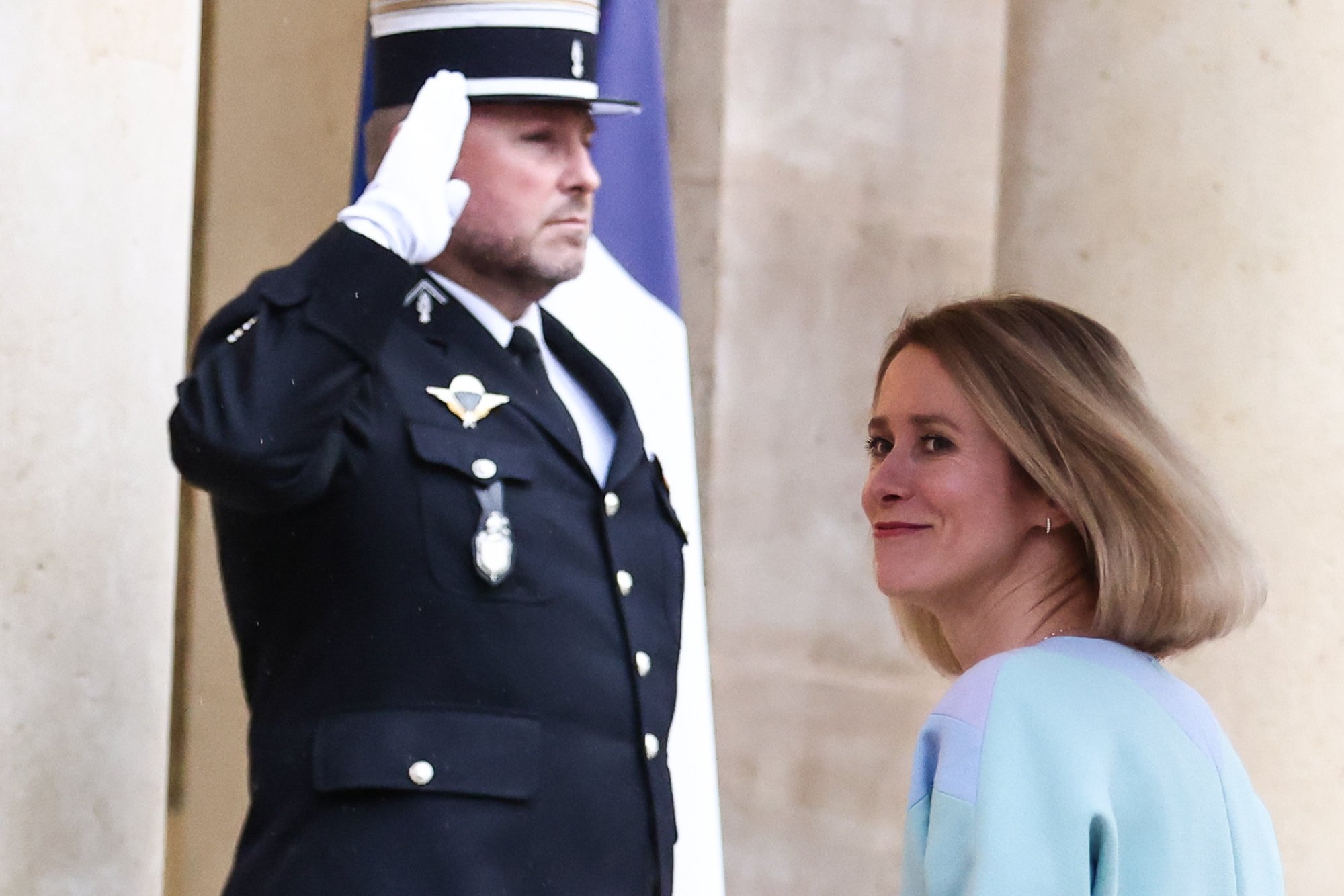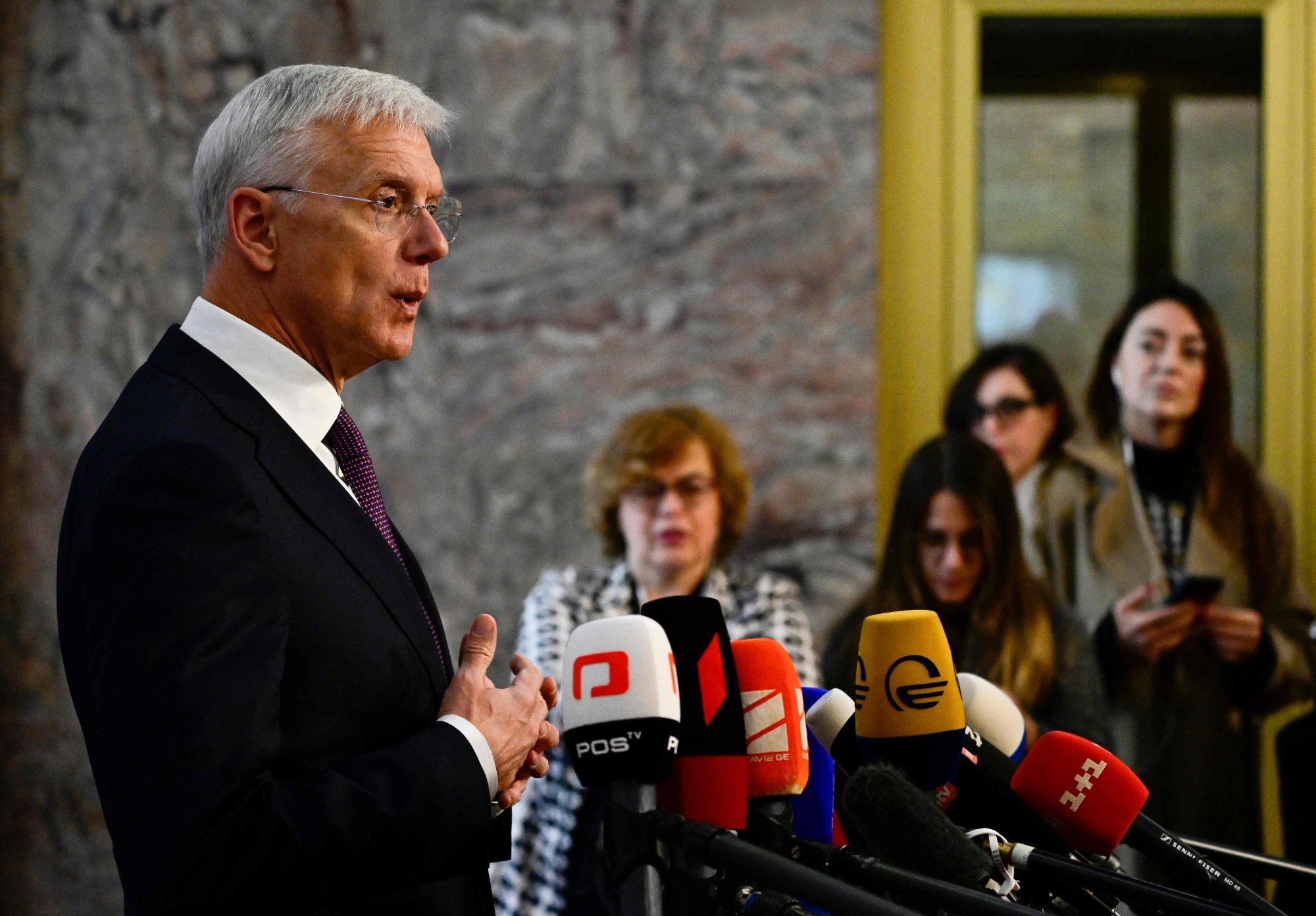Mark Rutte seizes lead in Nato job race as he exits Dutch politics
Dutch Prime Minister Mark Rutte has become the front-runner to take over as Nato chief when Jens Stoltenberg steps down next year, overshadowing other candidates including Estonian Prime Minister Kaja Kallas.
While it’s still not a done deal as more candidates may join the race, Rutte, 56, already has a strong consensus among many allies to take over when Stoltenberg’s term ends in October, according to people familiar with the deliberations on the succession process.
Rutte is wrapping up 13 years as the Netherlands’ longest-serving premier after the Dutch government collapsed in July amid infighting over migration policy. He has said he would leave politics after a new cabinet is formed following elections on Wednesday.
The Dutch and US governments were in contact about Rutte’s chances around the time he said last month that he was open to the job, said one of the people, who spoke on the condition of anonymity. Rutte, however, hasn’t been in contact with his American counterparts directly.
The role of the Nato secretary general will continue to remain critical as Russia’s war with Ukraine is set to drag on for years.
The Nato chief will need to balance avoiding any direct spillovers or wider escalation between the alliance and Russia, while also encouraging allies to maintain military and financial support for Ukraine as the public starts to grow weary of the costs.
Dutch PM Mark Rutte signals interest in Nato’s top job
Dutch PM Mark Rutte signals interest in Nato’s top job
A spokesperson from Rutte’s office declined to comment.
The decision needs to be unanimous among the 31 North Atlantic Treaty Organization allies but the view from the US, which leads the military contributions at the alliance, always holds the most weight.
Rutte has already been approached by the US twice for the role, another person said. He turned it down the last time because he didn’t think his cabinet would collapse this quickly.
The Dutch leader faces competition from Baltic candidates Kallas and Latvia’s foreign minister and ex-premier Krisjanis Karins, who both have said recently they’d be open to the role.
Nato allies have wanted to consider candidates from different regions and with different profiles than the recent secretary generals, who were Nordic or Dutch men. But both Karins and Kallas could face challenges given that Baltic nations have been seen as too hawkish toward Moscow to lead the alliance.
There is also still some time before allies need to settle on a new leader, during which new contenders could emerge.

After helming the alliance for a decade through tumultuous periods, including Russia’s invasion of Ukraine and allies’ exit from Afghanistan, Stoltenberg will step down during the alliance’s 75th year, which will be celebrated at a leaders’ summit in Washington next summer.
The goal is to announce his successor by the summit and, for some allies, ideally months before that, so the post doesn’t get caught up in horse-trading for top jobs around the European Union elections in June.
Formal US backing would solidify Rutte’s position as next in line to lead Nato. His government has tightened ties between the US and the Netherlands, as it bowed to pressure from Washington to restrict some trade with Beijing.
Russia’s defence chief hails China ties, warns Nato expansion has nuclear risks
Russia’s defence chief hails China ties, warns Nato expansion has nuclear risks
The Hague last summer announced plans to prohibit ASML, the maker of cutting-edge chip gears, from shipping some of its lithography machines to China.
The Dutch leader might also be better prepared than other candidates to deal with Donald Trump were he to win the US election next year. Rutte is seen as having had decent ties to the former president, who had threatened to withdraw the US from the military alliance.
Beyond the US, the Dutch leader would likely also garner support from countries like Hungary and Turkey, where he maintained good relationships behind closed doors, one of the people said. Eastern flank allies may also ultimately back Rutte in light of the Netherlands’ strong support of Ukraine’s effort to fight off Russia’s invasion.

Under Rutte’s leadership, the Netherlands has sent Ukraine important air defence systems and is taking a lead on training Ukrainian pilots on F-16 fighter jets.
Another important factor is whether the candidate’s country has reached or is nearing the goal of spending at least 2 per cent of GDP on defence. While the Netherlands doesn’t yet meet that target – it’s estimated to spend 1.7 per cent of GDP this year – funding has been steadily increasing. Estonia and Latvia, by contrast, have for years surpassed the target.
One thing is clear: after four extensions, Stoltenberg won’t stay on. “This is my last extension,” he told CNN in August.





